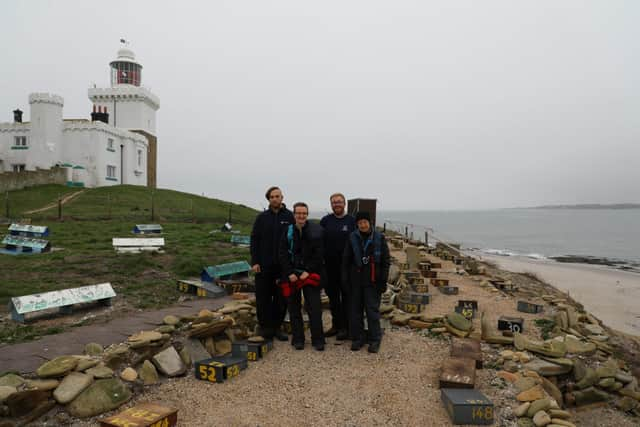Work carried out to help endangered birds on Northumberland island
and live on Freeview channel 276
Joining forces with RSPB wardens Paul Morrison and Ibrahim Alfarwi, Trust members Ethan McQueen, Mo Dewar, Lizzy Grieve and Robert Drummond braved the elements to install next box shelters around the island, which is usually closed to all but essential staff.
They prepared the roseate tern nesting platforms with shingle in preparation for the upcoming mating season.
Advertisement
Hide AdAdvertisement
Hide AdThe shingle is removed and replaced each year to prevent any disease affecting the birds which are now on the RSPB red list


Roseate terns with their pink-flushed breast and elegant, swallow-like tail streamers, are one of Europe’s rarest seabirds. They nest in colonies on a shallow scrape on the ground, but they will use special nest boxes placed on the floor allowing refuge from predators.
A summer visitor, roseate terns are usually the last breeding tern species to return to the island off the Amble coast each year, rarely arriving before May.
However, the future is looking rosy for the Coquet Island terns with 150 breeding pairs recorded in 2021 - a far cry from 1977 when only 16 pairs were recorded.
Advertisement
Hide AdAdvertisement
Hide AdEthan McQueen, Northumberland Wildlife Trust Kickstart trainee, said: “Visitors aren’t usually allowed onto the island so, as a trainee with the Trust, it was an amazing and once in a lifetime opportunity to get closer to the puffins and other seabirds that the island is famous for.”